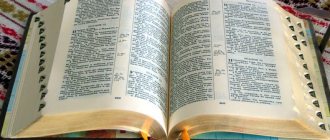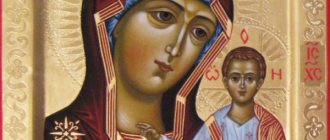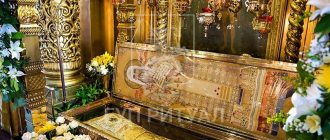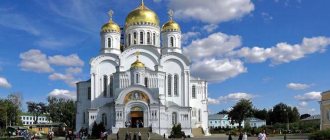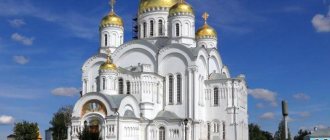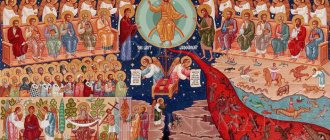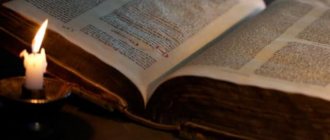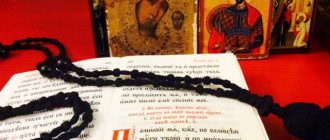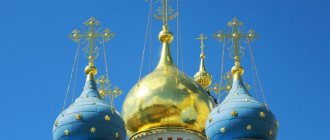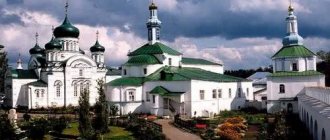The Holy Scriptures are compiled from books written by prophets. People endowed with divine insight subtly sensed the movements of the human soul. The Psalter of the Prophet David is the only book of the Old Testament that is fully used by the Orthodox Church. Every day, at various services, separate parts of the sacred text are read. Psalm 41, captivating with its melodic poetry, contains both a prayer and a prediction.
The Story of Psalm 41
The Psalter, or Book of Psalms of David, is part of the Old Testament. Like all Holy Scripture, the Psalter admonishes and instructs believers in their relationship to God and people. The hymns report on the works of the Almighty Creator and glorify God's grace. The Holy Book gives wisdom through experience in the remission of sins, and establishes faith in the Savior in the soul of a layman.
The Psalter, which consists of 150 psalms, is divided into 20 parts called “kathismas”. Kathismas are approximately the same size. The number of psalms in kathisma varies and depends on the size of the psalms included in it. For example, the seventeenth kathisma contains only one psalm 118, and the eighteenth kathisma contains 15 psalms.
In the Jewish version, the Psalter is called Tehillim, which literally means “praises.” The difference from the ancient Greek translation is that the hymns are numbered differently. And also some lyrics are combined, while others are split into two songs. In addition, the prayers are collected in five books.
Arrangement of psalms in Jewish Tehillim:
- The first book is from 1 to 40.
- The second book is from 41 to 71.
- The third book is from 72 to 88.
- The fourth book is from 89 to 105.
- The fifth book is from 106 to 150.
In Orthodoxy, Psalm 41 and 42 are included in the sixth kathisma. Both hymns are united in meaning and are called the “exile’s prayer.” The unity is confirmed by the verbatim repetition of the prayer in the sixth and twelfth verses of the first canto, as well as in the final fifth line of the second canto.
about the author
During the reign of the prophet David, priests from the Korah family were famous for singing divine hymns. Sometimes singers, in addition to singing psalms, also composed new texts. Authorship is indicated in the first line of the verse. Twelve psalms belong to the pen of poets with the surname Korey, including the forty-first prayer of the Psalter.
The Korah family comes from the tribe of Levi, the third son of Jacob. Korah himself was the cousin of Moses, who led the Jews out of Egyptian captivity. While wandering through the Arabian desert, Korah rebelled against the prophet. God severely punished the rebel, but had mercy on his sons, who did not support their father, and allowed them to serve as singers in the tabernacle and reach the promised land.
History of writing
King David, who united Judah and Israel into a single state, is considered one of the Old Testament prophets. The ruler's third son, Absalom, killed his half-brother Amnon, who had raped his sister Tamar. For three years the young man hid from the wrath of his father, who had lost his first-born son. The fugitive found refuge in Syria with his maternal grandfather.
Returning to his homeland, Absalom believed that he could become a teacher of the Israelis and replace the sovereign's judges. Four years later, the young man persuades the inhabitants of Hebron to revolt against the king. With devoted people, including the descendants of Korah, David leaves Jerusalem and goes northeast beyond the Jordan River.
In the Mahanaim desert, located near Mount Hermon, David grieves over the sins he has committed. Together with his people, the exile dreams of returning to Jerusalem, to his native temple. Here, in the Trans-Jordan side, the prayerful lamentations of the Israelis formed into the forty-first psalm.
History of writing
During his reign, King David won many battles, but the victory over his son Absalom was the most difficult for him. His own son rebelled against his father and began to pursue him, forcing him to flee the city. David prayed to the Lord for help, but at the same time he deeply felt the betrayal of his son. This time became a difficult test for the king, during which he wrote many songs to God, pleading and praising.
The caption to the text of Psalm 41 suggests that its author is one of the sons of Korah. They were loyal subjects of King David and followed him into the desert when he was forced to flee Jerusalem. Like David, the sons of Korah were believers, but it was the king who had a hard time fleeing the holy city. Observing the king's suffering, humility before the Divine will, and strength of faith, they dedicated to him Psalm 41, which is often considered the song of the exile.
Why do they read?
To understand how the 41st prayer of the Psalter helps, you need to know that the hymn consists of two semantic parts. At first, the hero of the song realizes his sins and languishes without the living God. At the end, the exile begs the Lord for intercession. Consequently, reading the text helps sincere repentance and teaches prayer.
Young people sometimes suffer from unrequited love. Arseny of Cappadocia, a monk who was born in 1840 and died in 1924 in Greece, advised in such cases to turn to God and read chant 41.
Reading the Psalter develops patience. In any situation, a believer trusts in the will of God and hopes for the Lord’s help. Reading the psalm gives spiritual strength that helps overcome sinful temptations.
Parishioners who rarely come to church cite their busy lives. Family responsibilities and concerns about career growth pose a seemingly insurmountable obstacle to the path to the temple of God. Home reading of the forty-first psalm helps to cope with everyday routine and go to the liturgy.
People often travel, visiting other cities or countries. Pilgrims make pilgrimages to holy places. The wandering layman prays for a safe return home and reads a hymn during the trip.
Reading rules
Not a single church service is held without reading the Psalter. The order of reading kathismas is indicated in the 17th chapter of the Liturgical Rules - Typikon. Every day at matins 2-3 kathismas are read, at vespers (except for Sundays, when the Psalter is not read) - one at a time. Individual psalms are used in the celebration of the daily hours. Over the course of a week, the Psalter is read in its entirety.
Days of the church calendar when two kathismas are read at morning services:
- Starting from Antipascha, which is celebrated a week after the Resurrection of Christ, and until the celebration of the Feast of the Exaltation of the Holy Cross on October 4th.
- Two weeks before the start of Lent, called meat and cheese weeks.
- From December 20 to January 14 according to the old style, or from January 2 to January 27 according to the Gregorian calendar.
The “Prayer of the Exile” is part of the sixth kathisma. During these periods, the hymn is read on Monday evening services.
After the celebration of the Feast of the Exaltation and until January 2 according to the new style, as well as from January 27 of the civil calendar until Sunday two weeks before Lent, three kathismas are read at Matins. During church services on Monday morning, the sixth kathisma and the 41st psalm are sung.
During Lent, prayer is read on Monday and Thursday at matins. If the feast of the Annunciation does not fall on Thursday in the fifth week of strict fasting, then the reading of the kathisma and psalm is transferred to the service of the ninth hour on Wednesday. During Holy Week, hymns are heard in church only on Monday morning.
There are no strict rules for home, or private, reading. You can turn to the psalms at any free time. Allowed to read from anywhere. It is also not forbidden to recite only one favorite psalm or set of hymns.
Before starting to read the Psalter, the following prayers are offered:
- Prayer to the Holy Spirit.
- Trisagion.
- "Our Father".
- Prayer to the Most Holy Trinity.
After finishing the reading of the psalms, the prayer “It is worthy to eat” is said. Each kathisma is divided into three parts by “Slavami”. At the first “Glory” they pray for the patriarch, clergy, and confessor. On the second, they ask for the health of family and friends. On the third, they pray for the repose of all the deceased.
The psalms are read slowly, thoughtfully, without emotion. Incorrect placement of accents, which leads to a distortion of meaning, is unacceptable. The text in Russian is pronounced in a low voice, but clearly. The Psalter may be read while sitting. The word “kathisma” is translated from Greek as the noun “sitting.” A lit candle or lamp helps create a divinely inspired mood. Questions that arise after prayer must be discussed with the confessor. The priest will give intelligible and sensible advice.
Text and interpretation
The phrase “to the end” in the first line means that the prayer is prophetic in nature. It is also indicated here that the hymn is dedicated to the prophet David. The author of the divine text is a poet and singer from the Korah family.
In verses two and three, the psalmist compares the man abandoned by God to a deer that is thirsty. Just as a wild animal in the forest is able to overcome any obstacles in search of water, so a person is ready for any test in order to fall to the source of life-giving moisture - God’s temple. The poet contrasts God with the corruptible idols of the pagans, calling Him “living” and “strong,” that is, omnipotent and eternal.
The fourth line mentions the Antichrist, who torments a person with a provocative question. Satan wants to drive a physically exhausted exile, for whom food and drink are replaced only by tears, to despair. This terrible sin leads to the destruction of faith.
The fifth verse is prophetic. Remembering earlier times when God turned to the people of Israel, the psalmist is confident that the return to the temple will happen through the Savior.
The sixth verse is repeated in its entirety in line 12 of the psalm. The depressed state of the grieving soul is overcome by turning to God. The person praying is confident that calling on the Deliverer will remove all kinds of adversity and adversity.
Lines 7 to 9 indicate geographically exactly where the prayer was created. The poet compares natural disasters in the mountains with disasters that befall a sinner. However, the blows of fate are unable to shake the faith of the exile, who raises prayers to the Almighty day and night.
In the final lines, from 10 to 12, the prayer itself is presented. Complaining about the bullying of ill-wishers, the psalmist appeals to the Heavenly King and trusts in the mercy of the Savior. The last verse—the refrain of line 6—intensifies the emotional content of the psalm.
When reading the Psalter, bright feelings fill the soul. There is a feeling of involvement in the events that are set out in the psalms. It seems to a person that the text is written about him. The voice of God, sounding in every word of biblical scripture, makes us open the Psalter again and again and read hymns to the King of Heaven.
We read the Psalter. Psalm 41
Audio |
Conversation with Archpriest Alexy Ladygin about the Psalter.
Today we are looking at Psalm 41. The psalm begins with this injunction: “To the end, to the understanding of the sons of Korah.” Of course, each injunction means something and explains something, which is what the holy psalmist David emphasizes in this psalm. It says “to the end” - the psalm is dedicated to the return of the Jews from Babylonian captivity, the experiences with which they were filled, and at the same time prophetic words showing that this captivity will come to an end. “Into understanding” means that everyone should understand those words in which the psalmist David prophesies and which reveal the deepest spiritual meaning.
The psalm is very comforting. If we are talking about the Psalter, then man has always found something in these words. The life of every person is difficult, and without God's help it is impossible to overcome the trials that we encounter in life. The psalms were read constantly, and the Orthodox person constantly found consolation in them. And this psalm gives such consolation, because during any trials in our lives the Lord never leaves us, but always helps us and leads us out of difficult situations.
This psalm is loved by both monastics and common people, because everyone has either spiritual or physical pain and trials. Anyone in any trial sings this psalm and receives considerable consolation.
“In the same way that the trees long for the springs of water, so my soul longs for You, O God.” When we talk about desire, it always expresses desire. And the psalmist David talks about how we should strive for God.
This speaks of the condition experienced by the Jews during the Babylonian captivity, in which they remained for 70 years. They understood that they had no communication with God, because communication is not only prayer, not only songs and words that can be said anywhere, but God “lived” in a certain place and for the Jewish environment it was clear where it was. This place is Solomon's Temple, it is where God rests. Only there, in Jerusalem, can the Law be fully fulfilled. It was there that man met God. In captivity, the Jews were deprived of this, so they ask the Lord to give them the opportunity to communicate with Him. Their desire never fades (moreover, this desire is very strong) to communicate with God, to see Him, to pray and offer hymns.
Therefore, David says: “In the same way the tree desires the springs of water” - like a deer desires to drink water and constantly strives for the springs... His nature is like this: he feeds not only on grass, but also swallows snakes, his body is heated, he is constantly thirsty, and to quench this thirst, he strives for water sources. Likewise, my soul strives for God, says the psalmist David, expressing the desire of all the people, who also seek God, wanting to be satisfied with communication with Him: without God it is impossible to accomplish anything in your life - it is impossible to defeat either exciting passions or the enemy. And only the Lord helps a person gain such strength in victory.
And it is never possible to get enough of communicating with God once and for all. Thirst is always maintained in a deer, and the same desire for God should always be maintained in a person. And the desire must be fulfilled: just as a deer goes to a spring more than once a day where it can drink water, so a person must constantly have the desire to communicate with God.
“My soul thirsts for the Mighty, Living God.” Again, amazing words: The Psalmist says what aspiration and desire a person has for God. It is constant, ardent - this is the desire for the Mighty, Living God. Some holy fathers say that here lies the subsequent prayerful doxology, which is now expressed in our words: “Holy God, Holy Mighty, Holy Immortal, have mercy on us.” God the Father is naturally called God. “The Holy Mighty” is the Son, “The Holy Immortal” is the Living Spirit, Who supports life in all living things. Subsequently, the visions of Isaiah were added, where it is already threefold: “Holy, Holy, Holy art thou our God.” Therefore, here the psalmist David, as it were, prophesies about the name of God, speaking of God as the Holy Trinity.
“...when will I come and appear before the face of God?” Of course, here the Psalmist expresses the desire of the people to return to the house of God - the Face of God can only be seen in the house of God: God lives in the temple. The temple belongs to God, just as a palace belongs to the king, therefore, according to etiquette, we do not behave like masters in the temple, this is not our home - this is the house of the Living God, in the temple we are always in the house of the Heavenly Father. It was possible to appear to the Face of God only in the Temple of Solomon. And these words precisely prophesy about the return of the Jews from Babylonian captivity.
“My tears were my bread day and night, and I was always saying, “Where is your God?” Why does the Psalmist say that tears were his bread? Of course, the trials of the Jews were very serious, and David further explains why “every day I say: Where is your God?” - in captivity, the Jews received reproaches and insults, and they were laughed at: “Where is your God, Whom you praise, Whom you worship? He doesn't protect you." And for them it was both sorrowful and offensive, so they cried day and night, if we take it literally.
But what are day and night? Day is, of course, a state of light, goodness, clarity. Day is always called good time, good time when it is peaceful. And night is the time when a person does not see where he is going, what is happening to him. Night usually refers to the time of some darkness, some joylessness, difficulties that a person experiences. It says here: Jews cry because they do not have communication with God - both when they have no difficulties, and when they are insulted, when they endure great trials, their heart also grieves and tears have become their bread. These are not only tears of bitterness and despair, these are also tears that console them and bring some kind of peace. When we have some kind of grief, misfortune, difficulties and trials, then tears really turn out to be a consolation for us, they seem to relieve the severity of the pain. It is no coincidence that they say: “Well, cry, cry.” And when you cry, it becomes easier. Just as a hungry man eats bread and receives strength, so it is here: a man eats his tears with bread, receiving both consolation and strength to overcome this bitterness and difficulty. Therefore, the psalmist says: “My tears were my bread day and night, and I was always saying, “Where is your God?”
“I remembered this and poured out my soul on me, as if I would go to the place of the wondrous settlement, even to the house of God...” Of course, the memory that one day it will be possible to return to the house of God, to one’s homeland, seems to soften the soul of the psalmist a little David, and those who were in Babylonian captivity, his heart is filled with memories and hope that he will still come to the house where God is, to his villages, and will see the house of God...
“...in the voice of joy and confession of the noise of the celebration” - prayers, praises, spiritual uplift will be from the fact that you have returned to the house of God, to a completely normal state. You are free and at the same time you can glorify the Lord, communicate with Him and receive all kinds of mercies from Him. Naturally, if we say “the noise of the celebrants,” then we are talking about the state that has always existed at the temple: there have always been prayers, chants and praises.
“How sorrowful are you, my soul? And why are you embarrassing me? Trust in God, for we will confess to Him, the salvation of my face, and my God.” The psalmist says, addressing the soul: “Why are you filled with sorrow? Why does this grief make me confused? You should not do this, because the Lord will never leave you. Yes, now you are in oblivion, captivity, but due to the fact that you have committed many sins.”
The Lord punished the people for many sins, and they were taken into captivity. But don’t be embarrassed, remember the whole history of the life of the Jewish people: the Lord never left you, he always remembered you. And when the people repented and returned to God again, the Lord forgave them these sins and delivered them from the punishment that He sent precisely for these sins. This should always be remembered: no matter how hard it is, the Lord never leaves a person, He is the Savior. He is the Savior of man, for He is God.
“...and my God” - here, of course, is both confession and return from a desperate state. The most important thing in life, no matter what trial you are in, is to always remember the Lord and remember that “by punishing the punishment (says the psalmist David in another psalm), you will not put me to death.” The Lord never puts a person to death, never tests a person to the end. If a person trusts in Him, then He always saves him and delivers him from the difficult trials into which he falls.
“For myself, my soul is confused - (in me it is confused, internally it is in such confusion) - for this reason I remembered Thee from the land of Jordan and Ermonim, from the small mountain.” The psalmist David tells the people: “Whatever difficult trial you are in, remember, remember the whole story.” Interpreters and holy fathers believe that when the psalmist David speaks about the land of Jordan and Hermon, he returns Jordan and Hermon - all of Israel: “And remember, Israel, what kindness the Lord Himself had over you, because He never delivered you, He always was next to you, endowed you with much mercy, gave you the strength to defeat the enemy, gave you the strength to build a temple, He has always been with you and now will not leave you.”
“The abyss calls forth the abyss in the voice of Thy abyss, all Thy heights and Thy waves have come upon me.” What is the abyss calling the abyss? Here interpreters and holy fathers differ a little, each trying to show what this “abyss of the abyss” means: these words have the deepest meaning. Of course, if we talk about the context of the entire psalm, we will understand that the abyss is the trials that befell the Jewish people: if we become closely acquainted with the history of the Old Testament, we will understand that the people fell from one trial into another, and some trials were more difficult than others - It was not easy to lead this people of God: there were many apostasies, many sins. The greatest sin is, of course, apostasy from the Lord, the worship of foreign gods, and for this the Lord always punished the Jewish people - only by maintaining their faith in purity and truth did these people prosper. And here one abyss of trials was replaced by another abyss. But at the same time (if “the abyss calls upon the abyss”) the holy fathers said that we can understand this way: the abyss of human sins is still covered by the abyss of God’s mercy, otherwise then it would not be possible to feel the presence of God Himself, to feel the hand of God, which always brought the Jewish people out of the trials and difficulties into which they found themselves in their sinfulness. Indeed, the abyss of God’s mercy has always washed away the abyss of sins and all uncleanness of the Jewish people.
Here we can also talk about the Christological interpretation: if we are talking about the abyss of God’s mercy, then it was revealed in full in the New Testament, when the Lord had already come. And one was the abyss of truth and the abyss of the mind of God, which was revealed in the Old Testament, but it also caused the abyss of reason, mercy and the Revelation of God in the New Testament. So here the deepest meaning of Holy Scripture is revealed, which shows us the ways of God. Therefore it is said: “...all Your heights and Your waves have come upon me.”
“In the day the Lord commands His mercy, and in the night His song is from me, a prayer to the God of my life.” These are also the deepest words, which say that the Lord has commanded and, of course, will give His mercy. And it will give obviously, not just in the night. If the Lord allowed a person to clearly suffer, then He will clearly show him mercy. These words are really very deep. A person receives reproaches in life, and we very often receive them due to some untruth, or slander, or through false people who seek to inflict some kind of blow on you. And this makes the heart shrink, it becomes sad and filled with a lot of pain and a lot of suffering. And you think: “Lord, how can I get rid of this? Where can I find strength? Of course, strength must be sought here, in the 41st Psalm, in which the Lord speaks such amazing words through the psalmist David: “In the day the Lord will command His mercy...” - that is: “I will manifest your salvation, deliverance from this reproach, and everyone will see that I am Your God and I am with You; and I will justify You." “And His song was for me at night” - it says here that the Jewish people glorify God for the fact that He will not forsake. And not only during the day: during the day it is impossible to glorify the Lord, since they were in slavery, and worked hard, and served earthly rulers. But the night is always given to a person to restore strength, the night always belongs to a person - and from the night you can take time to glorify God. Some now say that there is not enough time for prayer - then take a little time from the night, go to bed later, get up early, and then you will have time to praise God, as the Jewish people did in the Babylonian captivity: they took time from the night to glorify God.
“...and a prayer to the God of my life.” Why is there “prayer” here? We are talking about hymns, songs, harps, and celebratory noise. But the psalmist David also speaks separately about prayer. Why is such deep significance attached to it? In any hymns, in songs, and in noise, this glorification occurs, say the holy fathers, and thanksgiving to God, but only in prayer can a person ask something from Him. And in songs, noise, and some external actions, we certainly praise and thank the Lord.
“I say to God: You are my protector, why have you forgotten me? And I go around complaining, but the enemy sometimes insults me?” The abandonment here is felt not because the people receive some kind of insult; captivity itself is very difficult, the conditions are intolerable. But most of all this lamentation comes from the fact that the people are told: “Where is your God?” and seem to laugh at God. This makes the entire Jewish people feel bitter, so they say: “Lord! Why did you forget me? After all, they are not laughing at me, they are laughing at You, but You are the greatest shrine for me, and this makes my heart hurt and constrict.”
“Always crush my bones, smite my reproaches, always say to them to me every day: Where is your God?” Again there is a repetition of these words and a certain reproach: “Where is God?” Yes, the strength is already running out, the composition of the human body is no longer maintained from labor. But this is not the worst thing, but again the reproach from idolaters who do not have true worship of God.
“How sorrowful are you, my soul? And why are you embarrassing me? Trust in God, for we will confess to Him, the salvation of my face, and my God.” The psalmist ends with comforting words, as if a little reproaching: “Why do you grumble? Why are you embarrassed? Why are you mourning? You must remember that God will never leave you - He is your God, and He remembers you, He is your Father. Therefore, do not be embarrassed, just trust in God, and the Lord will show you His help and give you deliverance from this captivity.”
If we talk about captivity, we must always remember that captivity can be visible, physical, but there is also spiritual captivity, from the enemy of the human race.
Leading priest Alexy Ladygin
Recorded by Yulia Podzolova
